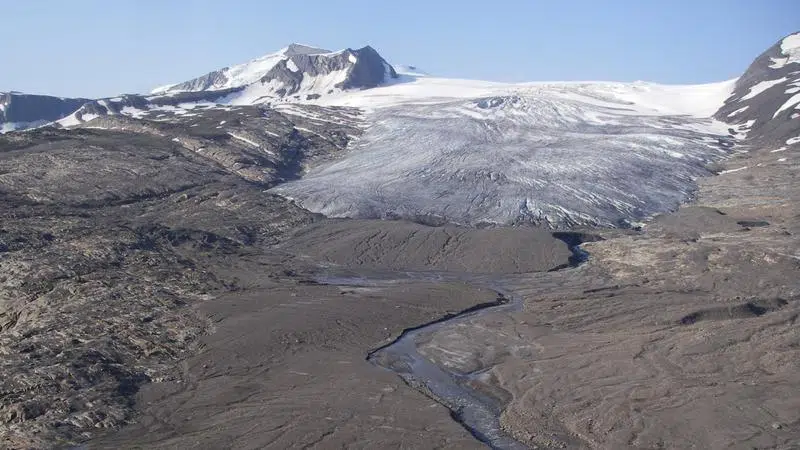
Sediments on glaciers act as sponge for contaminants: UNBC research
PRINCE GEORGE–Researchers out of UNBC have found that sediments on the surfaces of a glacier in BC, and glaciers around the world are acting as a sponge; absorbing large amounts of contaminants contained in glacial meltwater.
The findings were published in the Nature journal, Scientific Reports by researchers at UNBC and the University of Plymouth in the UK. The paper is available here.
“This is of interest given the increase in glacier retreat due to climate change, and thus more meltwater, which is releasing contaminants that were previously locked up in glaciers. As glaciers melt, they release water, sediment and contaminants to downstream rivers, which could affect aquatic ecosystems and human health” explains Dr. Phil Owens, a Professor in Environmental Science at UNBC, the lead author on the paper.
The paper mainly focuses on fallout radionuclides (radioactive nuclide) from atom-bomb tests in the 1950’s and 1960’s, which may have landed on glaciers around the world.
